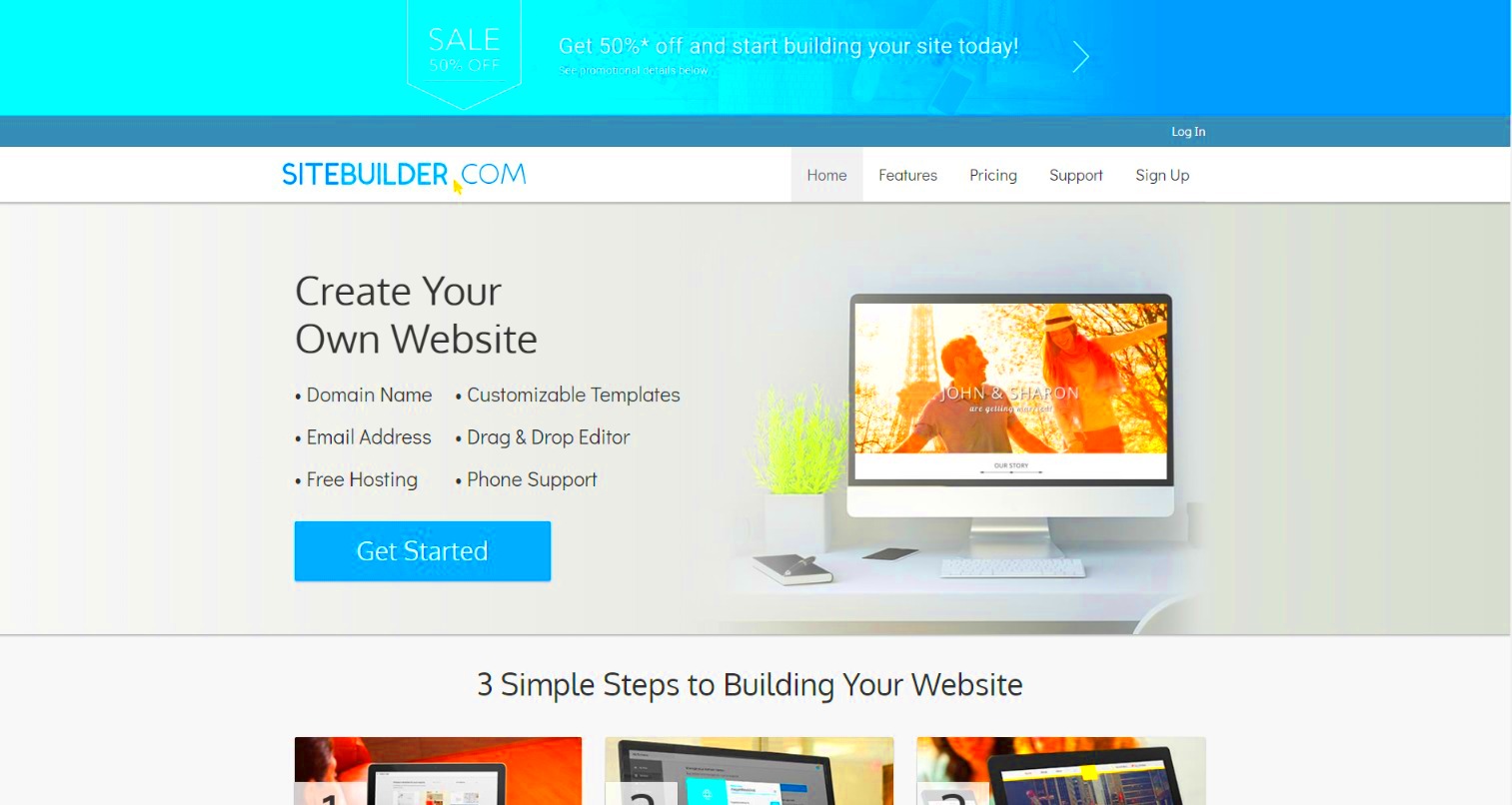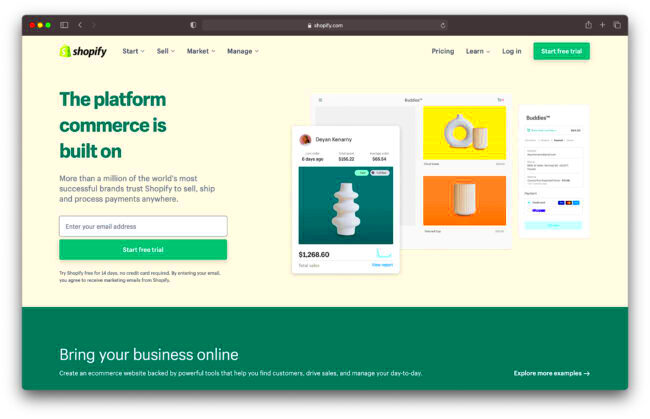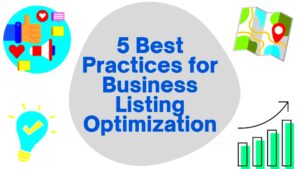In today’s digital age, having a strong online presence is crucial, especially for small business owners. Affordable website builders have emerged as a game-changer, providing cost-effective solutions for creating professional websites without requiring extensive technical skills. These tools empower entrepreneurs to design, customize, and launch their websites quickly and easily, enabling them to focus on growing their business. With a variety of platforms available, small business owners can find the perfect fit for their unique needs and budget.
Why Small Businesses Need a Website

Having a website is no longer just an option; it’s a necessity for small businesses looking to thrive in a competitive market. Here are some key reasons why every small business should invest in a website:
- Online Visibility: Your website acts as your online storefront. With more consumers turning to online searches, a well-designed website increases your chances of being found and attracting potential customers.
- Credibility: A professional website lends credibility to your business. Consumers are more likely to trust a company with a polished online presence, making them more inclined to engage with your brand.
- 24/7 Availability: Unlike brick-and-mortar stores, a website allows your business to be accessible around the clock. Customers can learn about your services, make purchases, or contact you at any time.
- Cost-Effective Marketing: A website can be a powerful marketing tool. It provides valuable insights through analytics, allowing you to measure your audience’s behavior and tailor your marketing strategies accordingly.
- Showcase Products and Services: A website serves as a gallery for your products and services. You can provide detailed descriptions, high-quality images, and even customer testimonials to entice visitors.
In summary, an affordable website can give small businesses the digital edge they need to succeed and grow in today’s marketplace. If you haven’t yet established your online presence, now is the time to consider building a website!
Key Features to Look for in Website Builders
When you’re searching for the right website builder for your small business, it’s crucial to know what features will make your life easier and help you create a stunning online presence. Here are some essential features to look for:
- User-Friendly Interface: If you’re not tech-savvy, you’ll want a platform that’s easy to navigate. Look for drag-and-drop builders that let you create your site with minimal hassle.
- Responsive Design: Nowadays, many people browse on mobile devices. Make sure the website builder offers templates that are mobile-responsive, ensuring your site looks great on any device.
- Customization Options: It’s important to have the flexibility to create a site that reflects your brand. Choose a builder that offers customizable templates and design options.
- SEO Features: Search engine optimization is vital for attracting visitors. Look for tools that help you optimize your site, like customizable URLs, meta tags, and sitemaps.
- E-commerce Capabilities: If you plan to sell products or services online, pick a builder that provides e-commerce functionality, like shopping carts, payment gateways, and inventory management.
- Customer Support: If something goes wrong, you’ll want help fast. Look for a builder that offers robust customer support through live chat, email, or phone.
- Scalability: As your business grows, your website should be able to grow with it. Choose a builder that allows you to add new features and expand functionality as needed.
Evaluating website builders against these features can save you time and ensure you invest in a solution that meets your needs and goals.
Top Affordable Website Builders
There are plenty of website builders out there that are perfect for small business owners without breaking the bank. Here’s a roundup of some of the top affordable options:
| Website Builder | Starting Price | Key Features |
|---|---|---|
| Wix | $14/month |
|
| Squarespace | $16/month |
|
| Weebly | $6/month |
|
| WordPress.com | $4/month |
|
| Shopify | $29/month |
|
Each of these builders offers unique features that cater to various business needs. Whether you’re looking for design flexibility, e-commerce functionality, or simple setup, there’s likely a perfect match among these options for your small business.
Comparing Pricing Plans and Features
When it comes to choosing an affordable website builder, the array of pricing plans and features can seem overwhelming. Each platform offers something unique, and by comparing these effectively, you can find the right fit for your business. Let’s break down some popular website builders and what they offer.
| Website Builder | Starting Price | Basic Features | Advanced Features |
|---|---|---|---|
| Wix | $14/month |
|
|
| Squarespace | $12/month |
|
|
| Weebly | $6/month |
|
|
As you can see, affordability does not mean compromising on key features. When choosing your website builder, think about your business needs and long-term goals. Don’t just focus on the price tag; instead, look for the features that will help you grow and engage your audience effectively.
Step-by-Step Guide to Building Your Website
Building your website can seem like a daunting task, but with the right guidance, it can be a smooth and enjoyable process. Follow this step-by-step guide to create your small business website effortlessly.
Step 1: Define Your Purpose
Before diving in, it’s essential to understand your website’s primary purpose. Are you showcasing your portfolio, selling products, or providing services? Knowing your goal will help shape your content and design.
Step 2: Choose a Website Builder
Now that you know your purpose, select an affordable website builder that meets your needs. Refer back to the comparison of pricing plans and features to identify the best option.
Step 3: Pick a Domain Name
Your website needs a unique domain name that reflects your business. Try to keep it short, memorable, and relevant to your offerings. Most website builders will guide you through the domain registration process.
Step 4: Select a Template
Website builders often provide a variety of templates. Choose one that resonates with your brand image. Keep in mind factors like color schemes, layout, and navigation style.
Step 5: Customize Your Content
Now, it’s time to add your content. Write engaging copy, upload high-quality images, and include necessary pages such as About Us, Services, and Contact. Make sure your content is clear and aligned with your brand’s voice.
Step 6: Optimize for SEO
Don’t forget about Search Engine Optimization (SEO). Use keywords relevant to your business in headings and content. Most website builders have built-in SEO tools, so take advantage of them!
Step 7: Review and Publish
After designing and optimizing your site, take a moment to review everything. Check for broken links, typos, and overall functionality. Once you’re satisfied, hit the Publish button!
Step 8: Promote Your Website
Lastly, share your website with the world! Utilize social media, email marketing, and networking to reach potential clients. Remember, building your website is just the first step—actively promoting it is crucial for growth.
And there you have it! With these steps, you can successfully create a professional and affordable website for your small business. Happy building!
Tips for Designing an Effective Website
Designing a website that effectively represents your business and captivates your audience is crucial. Here are some top tips to keep in mind:
- Keep It Simple: A clean and clutter-free design helps users focus on the content. Avoid overloading your visitors with too many images or complicated layouts.
- Mobile Responsiveness: Ensure your website is mobile-friendly. With more users accessing websites from their phones, a responsive design can significantly enhance user experience.
- Consistent Branding: Use a consistent color scheme, fonts, and logos across your website. This helps in building brand recognition and enhances professionalism.
- Clear Navigation: Your visitors should easily find what they’re looking for. Use intuitive menus, and limit the number of options to avoid overwhelming visitors.
- High-Quality Images: Visuals are the first thing users notice; make sure to use high-resolution and relevant images to enhance your site’s appeal.
- Fast Loading Times: Website speed matters! A slow-loading site can lead to high bounce rates. Optimize images and limit the use of heavy scripts.
- Compelling Calls-to-Action: Guide visitors towards taking specific actions, like signing up for newsletters or making a purchase, with clear and attractive CTAs.
By incorporating these elements, you can create an effective website that not only attracts visitors but also converts them into loyal customers.
Common Mistakes to Avoid When Creating Your Website
Creating a website can be an exciting venture, but there are pitfalls to watch out for. Here are some common mistakes that small business owners make:
- Neglecting SEO: Failing to optimize your site for search engines can limit your visibility online. Use keywords, optimize meta tags, and focus on quality content to enhance search rankings.
- Ignoring User Experience: Overly complicated designs or hard-to-read fonts can frustrate users. Always prioritize user experience to keep visitors engaged.
- Not Updating Content: An outdated website can make your business appear unprofessional. Regularly update content to reflect the latest offerings and industry trends.
- Forgetting About Security: Ensuring your site’s security is vital. Use HTTPS, keep your software updated, and backup your data regularly to protect against breaches.
- Lack of Clear Goals: Having no defined goals for your website can lead to aimless design. Set clear objectives, whether it’s generating leads or providing information, and design accordingly.
- Overusing Stock Photos: While stock photos can be useful, relying heavily on them can make your site look generic. Incorporate authentic images to give your business a personal touch.
By avoiding these common pitfalls, you’ll be well on your way to creating a website that stands out and effectively serves your audience.
9. Optimizing Your Website for Search Engines
Once you have your website set up using an affordable website builder, the next step is to ensure that it gets noticed by potential visitors. Search Engine Optimization (SEO) is key to increasing your website’s visibility on search engines like Google. But don’t worry; you don’t need to be an expert to start optimizing your site!
Here are some fundamental strategies to enhance your website’s SEO:
- Keyword Research: Identify relevant keywords that potential customers might use to find your products or services. Use tools like Google Keyword Planner or Ubersuggest for insights.
- Quality Content: Create engaging, informative content that addresses the needs of your audience. Blogs, articles, and tutorials not only help with SEO but also establish your authority in your niche.
- Meta Tags: Optimize your title tags and meta descriptions with targeted keywords. This helps search engines understand what your page is about and encourages users to click on your link.
- Mobile Optimization: Ensure your website is mobile-friendly. A responsive design improves user experience and boosts your site’s ranking in search results.
- Speed Matters: A fast-loading website is crucial. Use tools like Google PageSpeed Insights to analyze your site’s performance and make necessary adjustments.
- Internal and External Links: Link to relevant internal pages and establish backlinks to reputable external sites. This enhances credibility and improves your site’s ranking.
By dedicating some time to SEO, you’ll help your website climb the search engine rankings, driving more organic traffic to your small business!
10. Conclusion: Choosing the Right Website Builder for Your Business
Choosing the right website builder for your small business is a significant decision that impacts your online presence, brand, and ultimately your success. You want a platform that not only fits your budget but also aligns with your unique needs and goals.
Consider these key factors when making your decision:
- User-Friendly Interface: Look for a builder that is easy to navigate and manage, especially if you’re not tech-savvy.
- Customization Options: Your website should reflect your brand’s personality. Check the level of customization available to ensure it stands out.
- SEO Features: Some builders offer built-in SEO tools, making it easier to optimize your site from the start.
- Support and Resources: Reliable customer support and a wealth of resources (like tutorials and forums) can be invaluable when issues arise.
- Price: Finally, balance your needs against your budget. There are many affordable options that deliver great value.
In conclusion, investing time in research will pay off. An affordable website builder tailored to your business needs can help you create an effective online presence that sets you on the path to success. So, take a deep breath, weigh your options, and you’ll find the perfect fit for your small business! Happy building!



